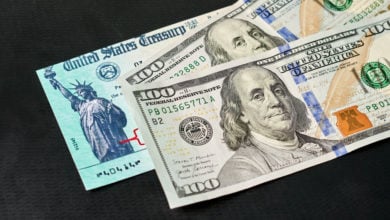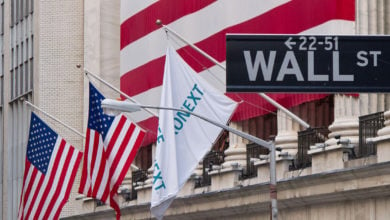In the United
States, more than 44 million people experience food insecurity. Each
year, 3.5 million people experience homelessness, including over one
million school-aged children. The official poverty rate is 14.3
percent; that’s 43.6 million people, and they don’t include those
barely scraping above the poverty line. 50.7 million people live
without any form of health insurance. The real unemployment rate is
19 percent, which includes people have become so “discouraged”
that they have stopped looking for work.
Each of these
figures are getting worse in the current economic crisis.
All this occurs
in the most productive economy in human history. U.S. workers produce
nearly $15 trillion in goods and services each year. As a frame of
reference, consider that China produces about a third of what U.S.
workers produce, though China’s population exceeds that of U.S. by
a billion more people. So where is the vast wealth produced by the
U.S. working class going? Why is there any economic crisis at all?
The answer is
uncomplicated. “Corporate Profits At All-Time High As Recovery
Stumbles,” reads a recent New York Times headline. The 400
richest people in the United States have more wealth than the poorest
40 million families combined. Many of the country’s richest
corporations are reporting record profits and sitting on literally
trillions of dollars in capital.
But according to
the laws of capitalism, this is all perfectly natural and normal.
The May 12 march
on Wall Street was an encouraging sign of the new political and
class-based movement that could develop in this country. With
organized labor at the lead, the march brought in large sectors of
non-unionized workers, including from the city’s most oppressed
communities, behind the demand of “Millionaire’s Tax—No
Cutbacks.” It is, after all, outrageous that General Electric,
Exxon Mobil, Bank of America and other corporations paid no taxes
last year, and that they did so legally. The fight to reform the tax
code, and make the banks pay for their crisis, is simply elementary
logic.
Millions of
people embrace it, no matter how much the television pundits tell us
that new taxes on the rich will hurt us all.
This is,
however, also a time to go beyond the obvious demand to increase
taxes on the millionaires and billionaires. We must talk about
capitalism and who holds power in this country. The rich are not rich
principally because of tax loopholes. They are rich because they own
and control the vast productive apparatus of this country. Under
capitalism and the rule of private property, no law can be passed to
force these corporate owners to deploy the vast sums we produced, but
they control. They have the legal right to sit on it, invest it in
worthless speculation, or spend it frivolously.
For a capitalist
to be punished for his crimes, he has to be harming other
capitalists. Raj Rajaratnam, a hedge fund manager worth almost $2
billion, had to commit insane levels of insider trading and
securities fraud to even be prosecuted. Hundreds of millions of
dollars flowed to him by gaming a system already rigged in his favor,
and he’s going to jail. It’s hard, though, to celebrate when the
other capitalist criminals have turned the entire regulatory
establishment into their own personal playground while millions of
our brothers and sisters rot in jail for petty offenses and trying to
survive a brutal world—victims of built-in racism and class
oppression in this, the most incarcerated society in human history.
You only have to
look back at last month’s federal budget crisis to see the true
priorities of our government on display. The Democrats and
Republicans negotiated for days behind closed doors, deciding what
programs to cut and by how much. WIC, a nutrition program for poor
women and children, will be cut by $504 million dollars. HIV and AIDS
prevention programs will lose over $1 billion. The Obama
administration had recommended many of these cuts before the
negotiations with the Republicans began. And military spending?
Increased by $5 billion when the war machine is so huge that, if it
were cut by 85 percent, it would still be the largest in the world.
The political
system is no less rigged than the economic one. For a presidential
campaign to seriously contend in 2012, a candidate will be expected
to raise $1 billion. Because neither big business party has any
interest in electoral reform, we still have a system that makes it
virtually impossible for a third party to win a place on the ballot
in all 50 states.
Working
people do everything. We work on the farms that produce our food, we
drive the trucks on the highways we paved, and we work at the
supermarkets and restaurants that sell it. We drive the trains and
buses that get millions of other workers to work every day. We clean
our streets, schools and workplaces. We teach our children and care
for the sick and hurt.
The times are
too dire—with too many people engaged in the most basic struggle
for survival—to speak in code.
We need the
political and economic system to be reorganized entirely in order to
meet society’s most crying needs. We need socialism, and we must say
it. The anti-socialist propaganda that has escalated in the last
three years is an attempt to silence the only real alternative.





